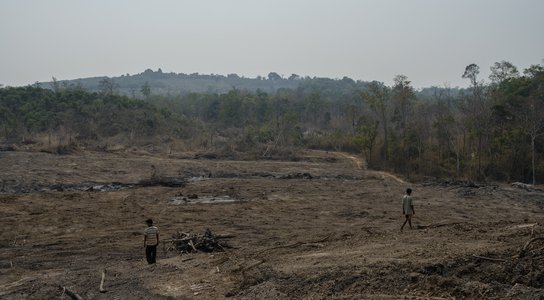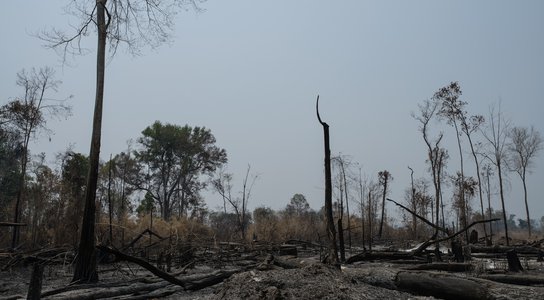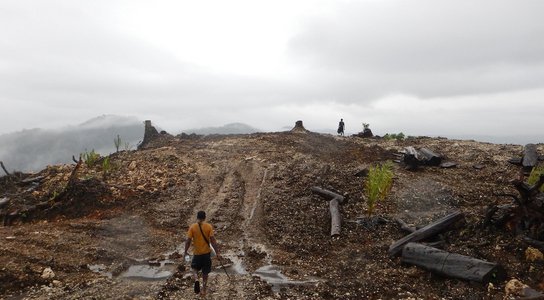As the European Parliament votes for a stronger due diligence regime – groups including anti-corruption NGO Global Witness – call on EU Member States to support the Parliament’s initiative.
Monday 5th November 2018 – Today sees a historic vote in the European Parliament, which groups have said could pave the first step for a more ethical system of financial investment across the continent – and even globally. This vote was led by a cross party group of Member of the European Parliament (MEPs), including from the European People’s Party (EPP), Socialist & Democrats (S&D), the Group of the Greens, and the Alliance of Liberals and Democrats (ALDE), demonstrating the EU’s commitment to sustainable investment and Parliament’s unified position.
As part of its position on the European proposal for rules on ‘Disclosures relating to sustainable investments and sustainability risks’, the European Parliament voted overwhelmingly to adopt a stronger due diligence regime, and a more robust framework to define sustainability risks when it comes to investments.
This means that MEPs have publicly adopted guidelines set down by the OECD on Due Diligence for Institutional Investors[1] - by calling for a due diligence regime as a key process to ensure sustainable investing.
If EU Member States agree to implement this proposal, this regime will ensure that an investor or investment services provider identifies, avoids or mitigates, accounts for and communicates about actual or potential adverse Environmental, Social and Governance factors and sustainability risks.
Groups are urgently calling for the Member States to support the Parliament’s initiative, and work to strengthen this due diligence regime as part of the EU’s Sustainable Finance Action Plan.
A recent briefing, released by the anti-corruption NGO Global Witness, shows that European’s money – and EU-based investors – regularly play a key role in funding projects linked to human rights abuses, land grabs and large-scale environmental destruction.
This briefing paper drew on previous Global Witness exposés to highlight the devastating impact of harms caused by predatory natural resource projects on communities around the world and the role that some EU-based investors play in supporting them. This includes case studies involving European investments in oil exploration in Africa’s oldest national park, a mining project in India which sparked violent protests and deforestation and land grabbing in Asia and Africa.
The EU’s landmark Action Plan on Financing Sustainable Growth aims to ‘reorient private capital to more sustainable investments’ and mainstream sustainability across investors’ risk management – and this recent vote to put this in action has been heralded as a major step forward by the Parliament.
Richard Gardiner, Global Witness said:
“This is an encouraging first step in creating a more ethical landscape for EU financial investment across Europe and beyond. Investors need to be able to conduct due diligence to identify whether the assets or companies they are investing in will have any negative impact on people and the planet. They must then take action to mitigate that impact. Investors have very sophisticated systems for managing and mitigating financial risk - now under these rules they will be required to implement the OECD guidelines and do the same for sustainability risks.
“With the political momentum building to make the financial sector more accountable for today’s vast sustainability challenges – be it climate change or threats to local communities – the European Council and its Member States now have an historic opportunity to support the Parliament and act to close these loopholes in the coming months.”
[1] https://mneguidelines.oecd.org/RBC-for-Institutional-Investors.pdf
/ ENDS
Contacts
-
Rachel Owens
Head of EU Office and EU Advocacy / Directrice du Bureau (UE). Campaign Lead on Corporate Accountability
Notes to editor:
- Interview
opportunities are available with Rachel Owens, Head of EU Advocacy at Global
Witness and Richard Gardiner EU campaigner.
- For more information or interviews please contact Rachel Owens [+44 7939 460357; [email protected]] or Richard Gardiner [+32 486 44 08061; rgardiner@globalwitness.
- The Briefing ‘Indecent Exposure: How EU based investors and their subsidiaries are helping to bankroll human rights violations and environmental destruction’ can be downloaded here (PDF).
- Global Witness
Briefing ‘EU Investor Due Diligence:
Ensuring finance works for people and planet’ from October 2018 can be downloaded here (PDF).
- More information on the 2017 report on attacks on Land and Environmental defenders: ‘At What Cost?’ released in July 2018 can be found
- Global Witness investigates and campaigns to change the system by exposing the economic networks behind conflict, corruption and environmental destruction.
You might also like
-
Briefing Indecent Exposure
How EU investors and their subsidiaries are helping to bankroll human rights abuses and environmental destruction
-
Briefing EU investor due diligence
It is crucial to ensure finance works for people and planet
-
Blog post 8 facts about sustainable finance – and how it affects you
This is what you need to know about sustainable finance in the EU